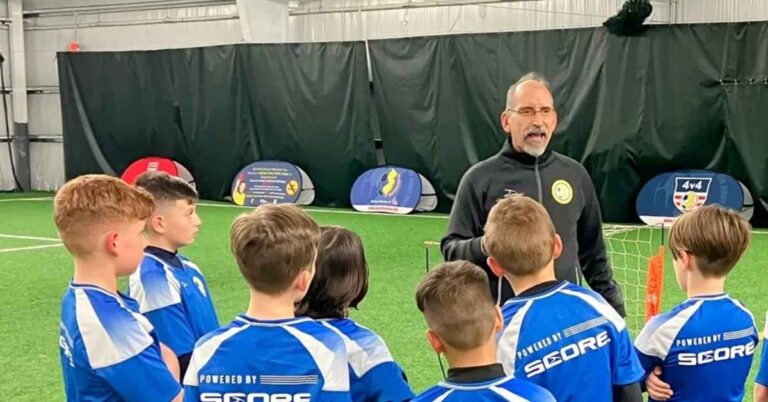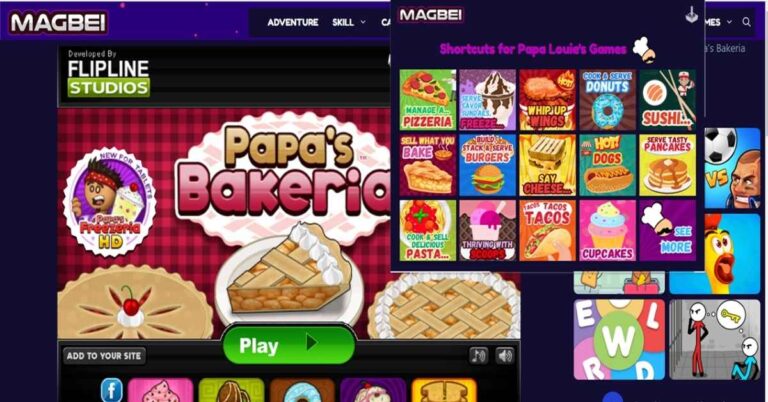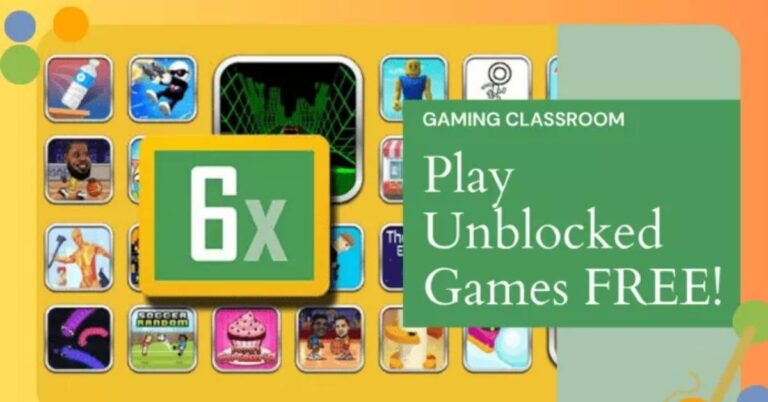Antony Starr Mobile Game Ad: A Deep Dive into the Viral Phenomenon
Antony Starr, best known for portraying the ruthless and iconic Homelander in Amazon Prime’s The Boys, surprised fans worldwide when he appeared in a bizarre and viral mobile game advertisement. This move sparked intrigue, memes, praise, and criticism across platforms like Reddit, TikTok, and Forbes. In this article, we’ll explore the context, content, controversy, and public reaction surrounding the Antony Starr mobile game ad, aiming to answer why this unexpected collaboration became a viral sensation.
The Rise of Celebrity Endorsements in Mobile Game Ads
In the past few years, mobile game companies have increased their marketing budgets and started hiring well-known actors and influencers to promote their products. From reality stars to TikTok influencers, the mobile gaming industry has gone all-in on celebrity power. Enter Antony Starr. Known for his gripping and intense performances, especially as Homelander, Starr’s appearance in a mobile game ad was not only unexpected—it was surreal.
The Antony Starr mobile game ad marks a significant evolution in how mobile game developers attempt to capture attention. It wasn’t just a random cameo. It was fully stylized, voice-acted, and highly produced.
Also Read: An Error Occurred While Authenticating with Rockstar Games Services
What Is “Last War,” the Game Antony Starr Advertised?
The game that features Starr is titled “Last War: Survival Game.” Marketed as a post-apocalyptic battle game with city-building and combat mechanics, it tries to blend strategy with survival. In the Antony Starr mobile game ad, the actor is dressed in a military-like outfit, leading troops and offering dramatic lines, evoking his authoritative persona similar to The Boys.
Despite these promises, user feedback and gameplay footage revealed a stark contrast between the dramatic ads and the actual game experience. Many viewers noted that the Antony Starr mobile game ad did not reflect the in-game graphics or mechanics—raising concerns about misleading advertising.

The Viral Reaction on Reddit and TikTok
As soon as the Antony Starr mobile game ad went live, it was instantly picked apart on social media. Reddit threads, especially in r/MeatCanyon and r/TheBoys, were filled with users expressing disbelief and humor about the actor’s participation in what they described as “yet another fake mobile game ad.”
Some of the top Reddit comments included:
- “How did bro sign up to do this ad, but not a Homelander spin-off?”
- “This game is nothing like the ad. Antony Starr’s performance is the only real thing here.”
- “Feels like deepfake territory… but it’s real.”
On TikTok, short clips of the Antony Starr mobile game ad received millions of views. Creators posted reaction videos, parodies, and breakdowns—analyzing the ad’s over-the-top tone and dramatic delivery. The hashtag #antoniystarrmobilegamead started trending, generating even more virality.
Also Read: The Ultimate Guide to NYT Connections Game Answers
Forbes’ Take: “Fake Mobile Game Adverts, Explained”
Forbes published a detailed article addressing the phenomenon of misleading mobile game advertising, citing the Antony Starr mobile game ad as a prime example. According to the article, these kinds of ads often dramatize the gameplay experience to attract downloads, even if they have little to do with the actual content.
The article questions:
- Why actors of Starr’s caliber agree to these roles.
- The ethical implications of using deceptive marketing.
- Whether this trend will continue or face regulatory action.
Despite these concerns, the piece emphasized that Starr’s performance was captivating—adding a touch of legitimacy to an otherwise questionable ad.
Was It Really Antony Starr?
One of the most asked questions was whether the ad featured the real Antony Starr or if it was AI-generated. Based on confirmed footage, behind-the-scenes interviews, and his own social media, it was indeed the real Antony Starr.
This adds another layer of mystery—why would an established actor agree to such a project? The answer might lie in global exposure, quick paychecks, or simply having fun with roles outside the usual typecast. Regardless, the Antony Starr mobile game ad was very real—and very viral.
The Memeification of the Ad
One cannot ignore the meme potential the ad unlocked. From dubbing the game “Homelander’s Budget War” to turning Starr’s dramatic lines into TikTok audio trends, users had a field day. Some even created “deepfakes” of Homelander himself advertising fictional games. Instagram reels and TikTok edits like “6th version of Antony Starr in mobile game ad for Last War” were watched hundreds of thousands of times.
Interestingly, some users praised Starr’s delivery, saying he added more drama to the ad than the game deserved. The Antony Starr mobile game ad became less about promoting the game and more about celebrating the absurdity of celebrity-endorsed mobile ads.
The Industry Trend: Real Actor, Fake Game
The Antony Starr mobile game ad isn’t the only one of its kind. In recent years, similar ads have included Megan Fox, Arnold Schwarzenegger, and even Elon Musk lookalikes. The strategy is simple—use a recognizable face, build intrigue, and rake in downloads.
However, this trend is increasingly under scrutiny. Users are demanding transparency, and platforms like YouTube and TikTok are being urged to crack down on misleading game promotions. In this climate, the Antony Starr mobile game ad stands as both a benchmark and a warning.
Does This Hurt Antony Starr’s Reputation?
While some fans expressed disappointment, most recognized that this is a separate sphere of Starr’s career. The actor is still widely respected for his intense portrayal of Homelander. For many, the ad became more of a hilarious sidenote than a damaging career move.
In fact, the Antony Starr mobile game ad may have inadvertently humanized him. Seeing such a serious actor in a humorous, over-the-top mobile game role made fans feel like he was in on the joke.
Lessons for Mobile Game Marketers
The buzz around the Antony Starr mobile game ad provides valuable insights for marketers:
- Celebrity endorsement works – even if it’s ironic.
- Authenticity matters – users expect ads to reflect real gameplay.
- Memes sell – ads that become jokes tend to get more traction.
- Controversy can fuel downloads – users often install just to see if it’s really that bad.
For game developers, the takeaway is simple: get attention, but don’t burn trust.
The Impact on Fan Perception and Fandom Dynamics
One overlooked aspect of the Antony Starr mobile game ad is its impact on the The Boys fandom and broader audience perception. Fans who deeply identify Starr with the character of Homelander experienced a form of cognitive dissonance watching their favorite villain sell a mobile game that many deem low-effort or misleading. This unexpected pivot created debate within fan communities—some saw it as a sellout move, while others appreciated the irony and saw it as a tongue-in-cheek nod to Homelander’s egotistical personality. The ad became a flashpoint for fan discourse, forcing people to separate actor from character, and to consider whether fandom should dictate an actor’s professional choices. In many ways, the ad blurred the lines between fiction and reality, adding complexity to how audiences interact with celebrities in commercial settings.
Behind-the-Scenes: Production Quality and Starr’s Involvement
While most viewers focused on the content and implications of the ad itself, few considered the production process behind the Antony Starr mobile game ad. Reports suggest that Starr’s appearance was not a hastily made cameo, but a well-funded, scripted, and choreographed shoot complete with CGI effects and professional-grade filming. This suggests a major investment from the game developers, which further complicates the question of why such high-quality production was used to promote a relatively mediocre product. Starr’s involvement also appeared to be more than superficial—he delivered lines in character, appeared to be on-set for multiple takes, and likely participated in motion capture or green screen work. The ad, therefore, wasn’t a half-hearted celebrity drop-in—it was a full-on performance, albeit for an unexpected medium.
Influence on Other Actors and Advertising Norms
The Antony Starr mobile game ad may mark a turning point in the way actors and agencies view mobile game endorsements. Traditionally, A-list actors avoided mobile game ads due to concerns about brand integrity or misalignment with their image. However, Starr’s involvement—and the resulting virality—could open doors for more actors to explore these unconventional gigs. Marketing teams may now feel emboldened to pitch bigger budgets and bolder concepts to talent agencies, especially if virality and engagement are the end goals. This shift could also normalize the blending of Hollywood-style performances with casual or low-entry digital entertainment like mobile games. In time, we might even see union-negotiated contracts or regulatory oversight for how actors are presented in these ads, particularly if AI or deepfake technologies are involved.
The Role of AI and Future Potential for Deepfakes
While it’s been confirmed that the Antony Starr mobile game ad features the real actor, it opened up broader concerns around AI-generated ads. As deepfake and voice-cloning technologies advance, it’s becoming increasingly difficult for audiences to determine if a celebrity endorsement is authentic. The realism of Starr’s appearance led many to question its legitimacy initially, which is a sign of changing media trust standards. Looking forward, mobile game companies might bypass expensive contracts by using AI-generated avatars of celebrities—raising ethical and legal issues. The Starr ad, though real, serves as a case study in how close we are to a future where authenticity may be simulated. As a result, fans and regulators may demand new forms of transparency in advertising, requiring platforms to disclose whether an actor is real, animated, or AI-generated.
Conclusion: A Strange, Successful Experiment
The Antony Starr mobile game ad represents the strange intersection of celebrity culture, gaming, and internet virality. While it may not have accurately reflected the gameplay of “Last War,” it succeeded in making people talk, share, and meme. In a crowded market, that’s half the battle won.
Whether this trend of A-list actors starring in dubious mobile ads will continue remains to be seen. But one thing’s for sure—Antony Starr’s moment as a mobile warlord will remain one of the weirdest and most talked-about ads of the year.
Also Read:
- Egads Game Uncovered: From Charity Board Games to Game Jams and Indie RPGs
- Epoch Times Games: A Deep Dive into Brain-Boosting Fun and Free Entertainment
- DKM Games: The Ultimate Destination for Brain and Puzzle Game Lovers
- Player 100 Squid Game 2: A Deep Dive into the Controversial Character
- Phoodle Game: The Addictive Word Puzzle for Food Lovers





